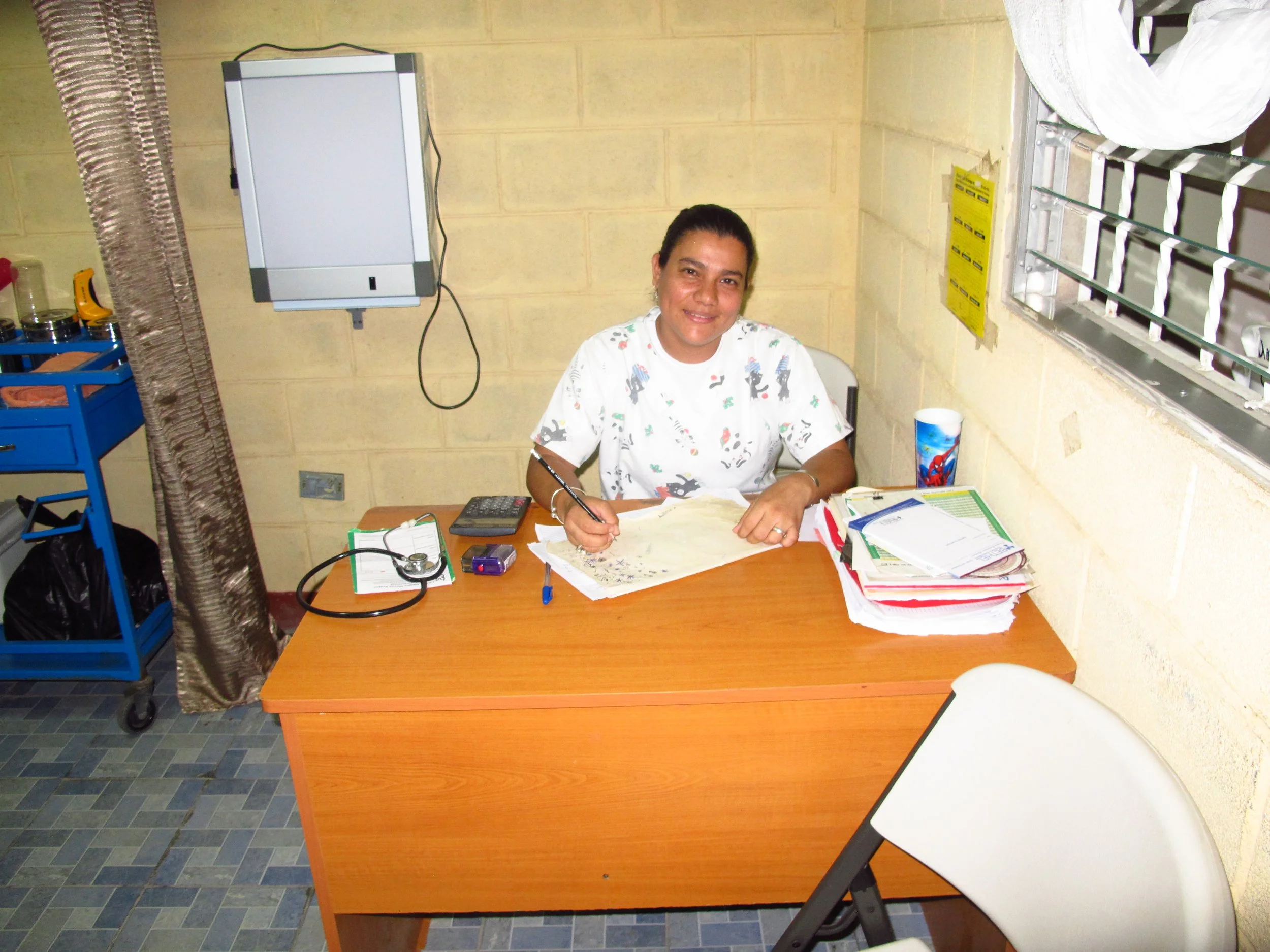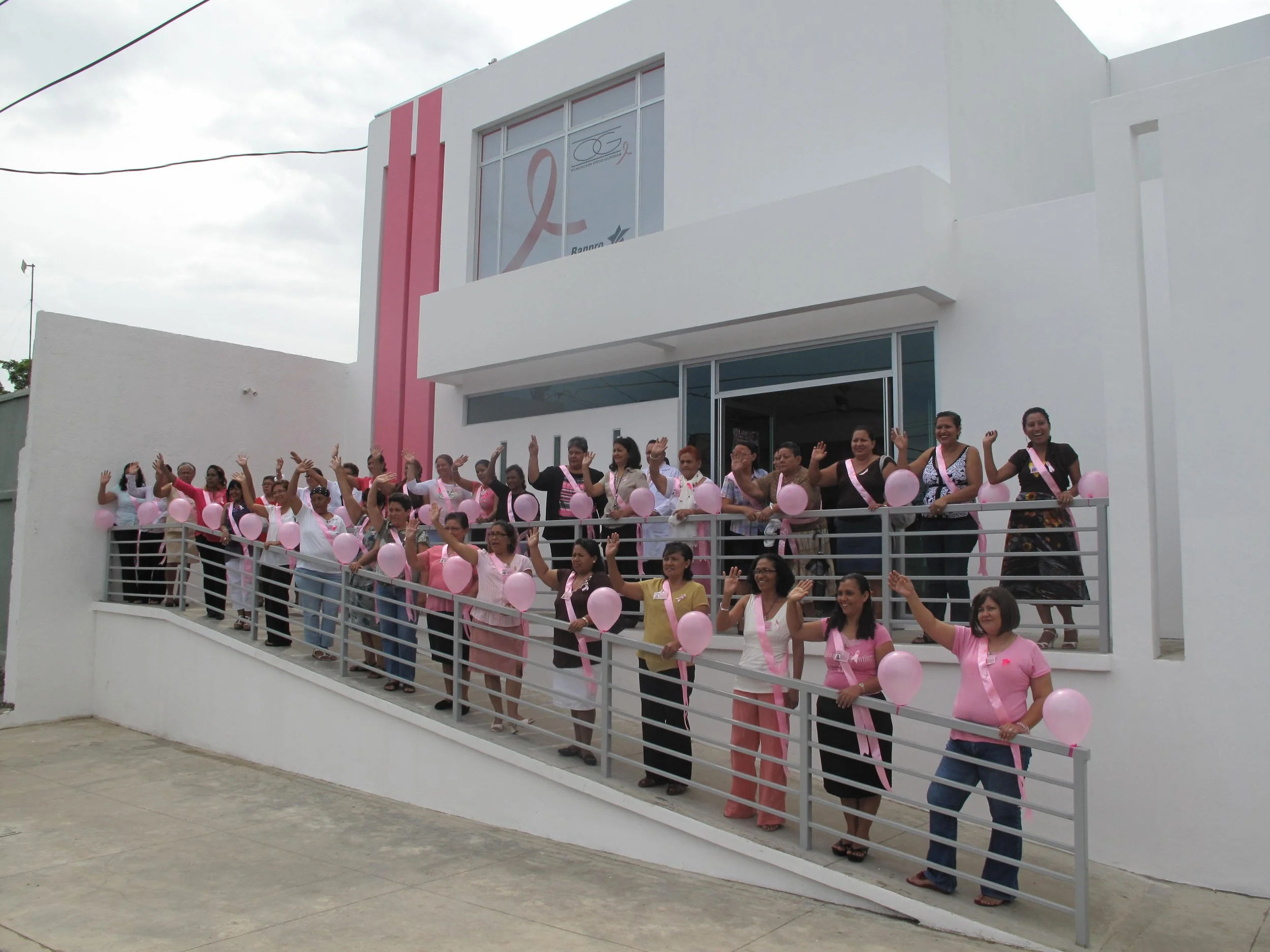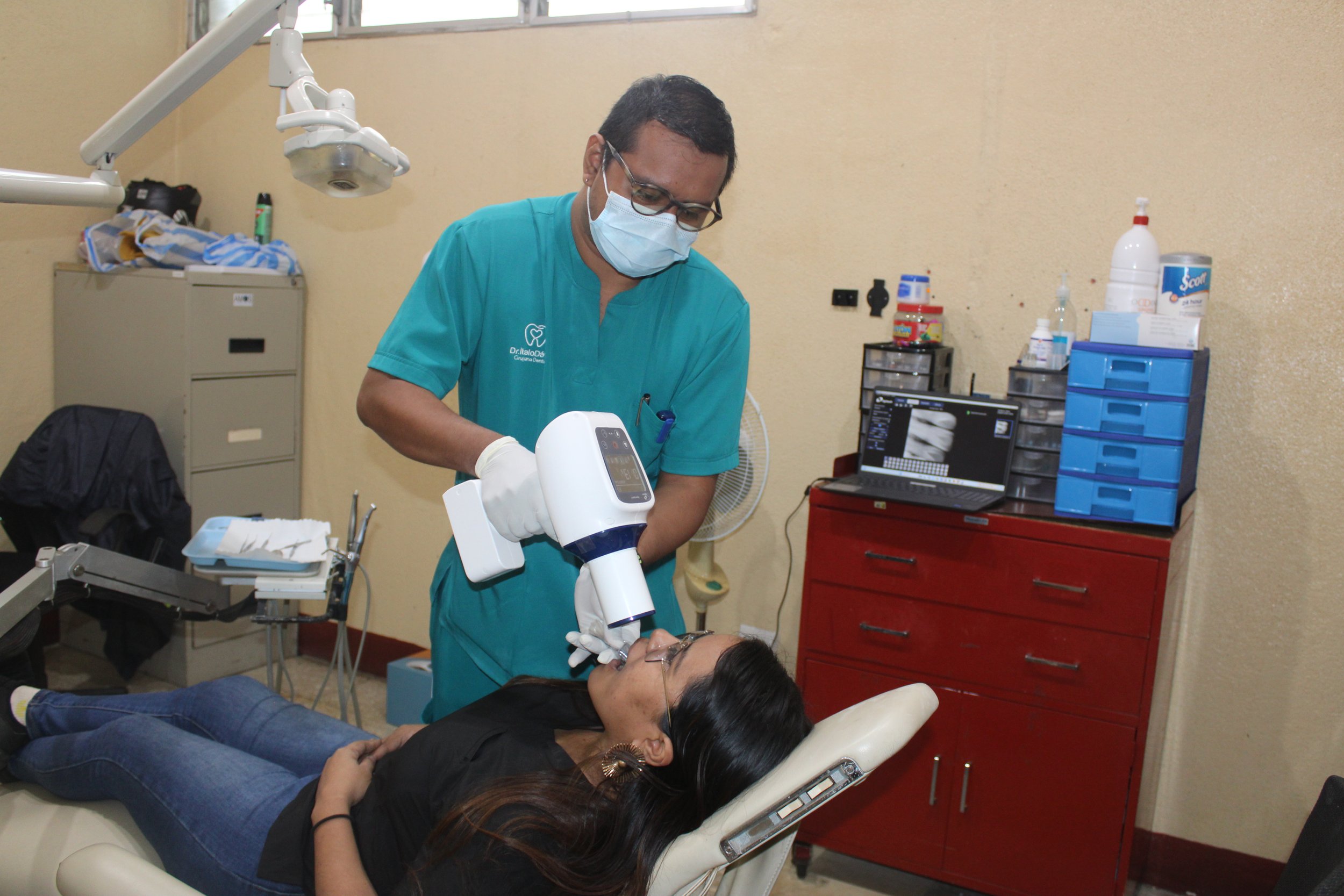
Healthcare

Nicaragua is the poorest Spanish-speaking country in the world. There are severe constraints on the availability and quality of healthcare. Austin Samaritans provides support to three carefully selected medical clinics and a dental program that focus on serving the neediest and most vulnerable populations of Managua, especially women and children. Read more below on the work supported at Clínica Villa Guadalupe, Clínica El Samaritano, Fundación Ortiz Gurdián, and the dental program at Clínica El Samaritano.
Click to Read More
-
Primary Care, Obstetrics/Gynecology, and Pediatrics
Clínica Villa Guadalupe is fully licensed by the Nicaragua Ministry of Health and is an important provider of health care services in its community. It provides general medical services, obstetric/gynecological services, ultrasounds, laboratory tests, and free medicines. There is a special focus on pediatric services and monitoring the growth and development of pediatric patients under 5 years of age. In 2024 the clinic provided 2,610 general medical consultations, 654 obstetric/gynecological consultations, 1,088 consultations with children under 12 years old, 317 ultrasounds and 388 consultations with chronically ill patients.
A large majority of the patients are female (73%). Women especially appreciate the quick turn-around time for receiving results of their PAP smears and the personal care given if follow-up is required. Government clinics are free but can take up to three months to provide results for PAP smears.
This clinic, and the community it serves, have their origins in the Managua city dump. Until 2013 there were 1,200 residents that lived in the dump and survived by sorting through the trash to recover anything that could be sold. There was a clinic, Casa Base de Salud, in the dump that provided basic medical services. The clinic was operated by the joint efforts of a Nicaraguan organization and a US-based organization, Manna Project International (MPI). Austin Samaritans helped fund this clinic beginning with the creation of Austin Samaritans in 2007.
The City of Managua and the Spanish Agency of International Cooperation for Development undertook a project to transform the Managua dump into a managed landfill with soil cover each day and a recycling plant. The project included the relocation of the residents of the dump. Houses were constructed for these residents in Barrio Villa Guadalupe. However, the transition was abrupt. Residents were moved with little notice. With only two days’ notice, Casa Base de Salud had to evacuate its building, which was subsequently razed.
Initially, the clinic re-established operations in half of a small duplex in Barrio Villa Guadalupe. Later, operations were moved to a small house in the neighborhood, where the clinic still operates. When clinic operations transitioned to the house, MPI became the sole operator of the clinic, and Austin Samaritans increased its support to enable the clinic to survive.
The community served by the clinic increased significantly in size when the clinic moved to Barrio Villa Guadalupe. In addition to former residents of the dump, the clinic also began to serve approximately 450 families that were relocated from an area subject to flooding by Lake Managua to houses built by the City of Managua. There are now approximately 20,000 residents in the clinic’s service area.
In 2018, because of political turmoil and demonstrations, MPI withdrew from Nicaragua. Austin Samaritans was able to find an alternate organization to operate the clinic, AMOS Health & Hope (AMOS).
AMOS is a mission of the American Baptist Church. It began operating in Nicaragua in 1967. AMOS currently oversees 24 rural health clinics. In addition, since 2012, AMOS has operated Clínica El Samaritano in Nejapa, an impoverished neighborhood on the outskirts of Managua. Clínica El Samaritano provides general medical services, gynecology, laboratory and ultrasound services, and a pharmacy. The long-standing commitment of AMOS to improving the health and well-being to the residents of Nicaragua and their expertise in this area made AMOS an ideal candidate to assume operation of Clínica Villa Guadalupe. The transition was successful, and AMOS began operating the clinic in August 2019.
Since the Nicaraguan government has stipulated that clinics may not charge patients any fees, Austin Samaritans has become the sole support for CVG.
Click to Read More
-
Primary Care, Obstetrics/Gynecology, and Pediatrics
Clínica El Samaritano offers health care to the poor in Nejapa, a community on the outskirts of Managua. The clinic provides holistic care in general medicine and specialized care for pediatric and obstetric/gynecological needs. Services include laboratory diagnostics through its own laboratory and access to essential medication and treatments. Clínica El Samaritano staff also provide laboratory support for, and dental hygiene training at, Clínica Villa Guadalupe.
The clinic is operated by AMOS Health & Hope (AMOS). AMOS is a mission of the American Baptist Church. It began operating in Nicaragua in 1967. AMOS has operated Clínica El Samaritano in Nejapa since 2012. In addition to operating Clínica El Samaritano, AMOS supports work in rural health clinics in 22 communities located throughout Nicaragua.
In 2024 Clínica El Samaritano provided care for an average of 450 patients each month for a total of 5,410 appointments during the year.
Austin Samaritans is a financial supporter of both medical and dental services at Clínica El Samaritano.
Click to Read More
-
Screening and Treatment for Breast and Cervical Cancer
Cervical cancer is the leading cause of death for Nicaraguan women ages 30-60. The incidence of cervical cancer in Nicaragua is approximately four times that in the United States, and the death rate is approximately nine times greater. The difference in these outcomes is the result of insufficient access to gynecological screening and early treatment. Precancerous cervical lesions are often present for many years before cancer develops. If discovered in time, these lesions can be treated easily and inexpensively. Tragically, many women in Nicaragua are unable to access timely care due to barriers that include limited finances and cultural stigma.
Austin Samaritans has worked since its inception in 2007 to improve cancer care for Nicaraguan women. It has provided substantial donations of medical equipment and supplies to medical clinics and to Hospital Bertha Calderon, the only public hospital in Nicaragua caring for indigent women with cancer.
In 2009, Austin Samaritans joined with Fundación Ortiz Gurdián (FOG), a Nicaraguan non-profit, that was addressing breast cancer in women whose annual family income is less than $2,100 and who are not covered by governmental insurance. Women found to have breast cancer receive comprehensive treatment that can include surgery, chemotherapy, hormone therapy, and/or radiotherapy. Austin Samaritans facilitated the addition of screening and treatment of cervical cancer at the clinic. Women found to have precancerous lesions of the cervix undergo treatment of the lesions, which can save their lives.
In 2024, FOG provided the following services:
Screened 1,066 women for breast cancer.
Performed 728 PAP smears.
Initiated chemotherapy or hormone therapy for 94 breast cancer patients.
Performed 23 biopsies and 3 Leep treatments.
Performed 276 ambulatory breast cancer procedures.
Performed 52 breast cancer surgeries.
Once women complete their treatment, they ring a bell and are encouraged by FOG to enroll in classes to become Promotoras (Promoters/Recruiters.) As Promotoras, they spread the word in their communities and families and encourage women to be screened for these two types of cancer. These same women help distribute the bono saludos (coupons enabling a woman to have a free screening for breast and cervical cancer at the FOG clinic)
FOG works with groups in outlying communities to bring women in for screening and treatment. Promotoras organize transportation for groups of women from other cities to come to the clinic in Managua. FOG provides housing for patients from outside Managua receiving treatment.
Austin Samaritans continues to fund the cervical cancer screening and treatment program at FOG.
Click to Read More
-
Dental Care and Treatment
Since 2012, Clínica El Samaritano has provided health care to the poor in Nejapa, a community on the outskirts of Managua. The clinic provides holistic care in general medicine and specialized care for pediatric and obstetric/gynecological needs.
In 2019 Austin Samaritans worked with AMOS Health & Hope (AMOS), managers of Clínica El Samaritano, to provide equipment and funding support for the establishment of a dental facility at the medical clinic. High quality, affordable, compassionate dental care is provided here. Services provided by the dental clinic include fillings, extractions, abscess drainage, and cleaning.
In Nicaragua, for many families, financial limitations reduce the likelihood that they will pursue dental care. Many children start developing cavities at a young age. Under the public health system, patients must typically pay for dental procedures, and this is simply not feasible for many people experiencing economic hardship. Emergency care and extractions are the most available public dental services, which means vulnerable people who cannot afford private clinics may not seek help until their situation becomes an emergency, and they need to have their teeth pulled.
The El Samaritano Dental Program places major emphasis on educating children and parents in the Nejapa community and the community served by Clínica Villa Guadalupe about the importance of dental health, dental hygiene practices, and the role of good nutrition in maintaining healthy teeth. Both clinics host educational sessions where each child is given a toothbrush and taught appropriate brushing techniques. At the end of the session, a fluoride varnish is applied to each child’s teeth to strengthen enamel and prevent cavities.
Offering reliable, compassionate dental care is an important way the El Samaritano Dental Program provides hope for vulnerable families.
Austin Samaritans is the sole financial supporter of the dental program. Without this support the program would cease.




















